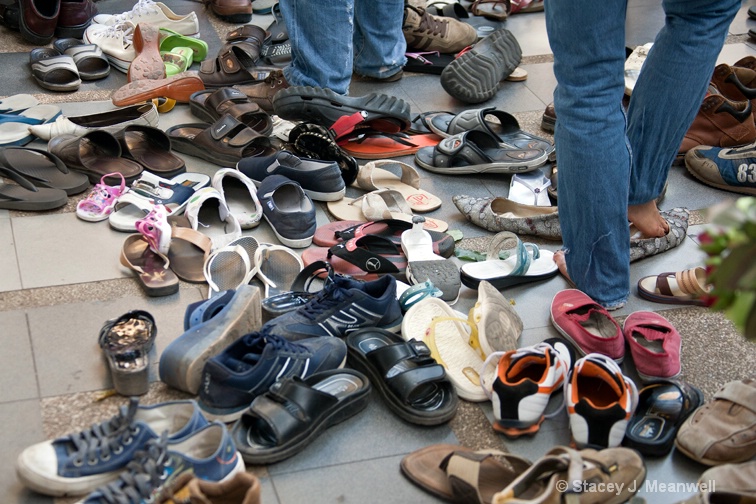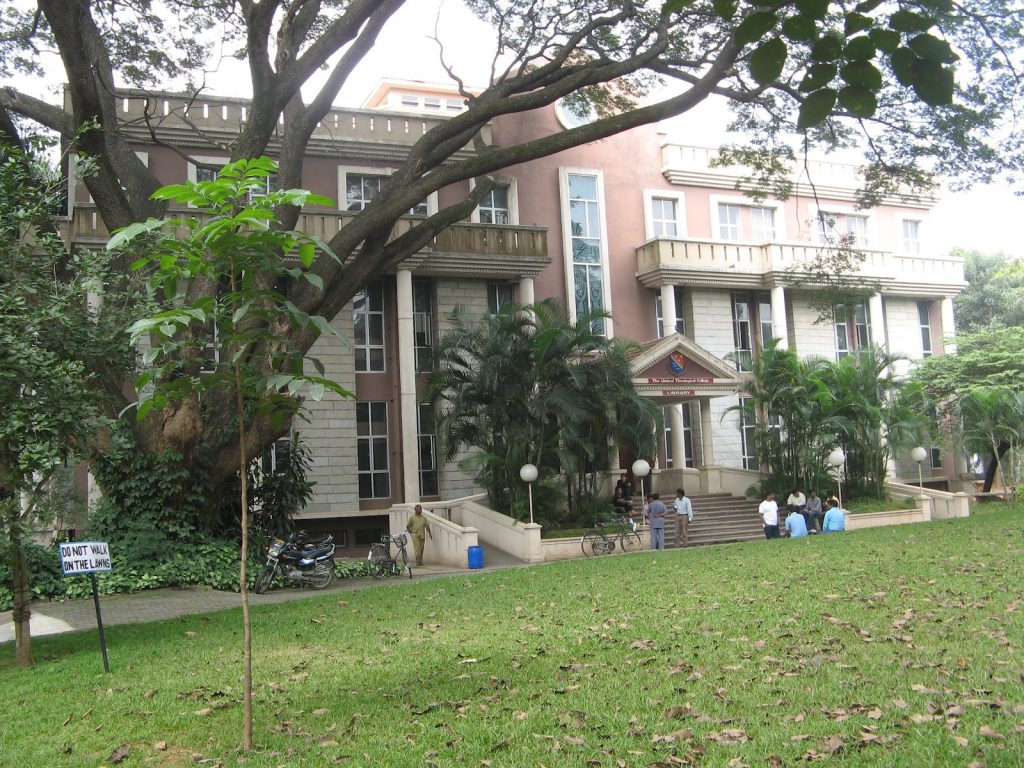India travel seminar: Leaving our shoes at the door

BY BILL REINHOLD (M.Div.’74)
After getting cleaned up from our overnight train trip from Hyderabad to Bangalore we hurried off to morning chapel with the students of United Theological College. By now we all had the drill down pat: find an open place to put our shoes near the door. What had been strange and a bit worrisome in the beginning (Where should we put the shoes? Will they be safe there? Will we recognize them when we come back out?) had all been answered through multiple experiences with this very common practice of leaving our shoes at the door — the doors of temples, of tombs, of churches, even of homes.

United Theological College
So it came as a bit of a shock to find only one lonely pair of sandals sitting outside the door of the chapel where one of the senior students was about to preach his trial sermon before the student body and us! It seems that the tradition of bare feet in worship does not extend to the College chapel. With puzzled glances inside to see that the students did indeed have their shoes on, we joined them for worship — with our shoes on.
Leaving shoes at the door is partly practical — everyone has just been walking where a thousand other people have walked in just the last hour so the simple act of taking off shoes dramatically reduces the need for constant cleaning — and is a cultural practice.
Questions about purity and pollution have a long tradition here. We have read every day in the local papers about a temple in the neighboring state of Kerala that has a longstanding tradition of barring women between the ages of 10 and 50 from entering the temple of the celibate god. Recently the Supreme Court of India ordered that women of all ages should be allowed to worship at this temple. However, crowds of men have (mostly) kept the women out of the temple. In response over a million women formed a 600-kilometer wall along the main highway of the state and brought traffic to a standstill for 15 minutes!
I have been wondering why women would want to worship in a temple where the deity did not want them until after chapel. This morning we visited with Dr. Rini Ralte, holder of two doctorate degrees (one with our own Dr. Katie Cannon) but who quickly corrected Dr. Sam Adams when he called her reverend doctor. Her particular Presbyterian denomination in the far Northeast of India (Mizoram) does not ordain women as ministers, although many denominations do. For 25 years Dr. Rini has taught women’s studies to both women and men who have gone on to serve their churches as ministers while that door has been closed to her.
Seen from this perspective the questions of honoring the sacred and avoiding pollution become ever more complicated and less and less clear as our amazing journey here continues.
Bill Reinhold is an alumnus at Union Presbyterian Seminary.

